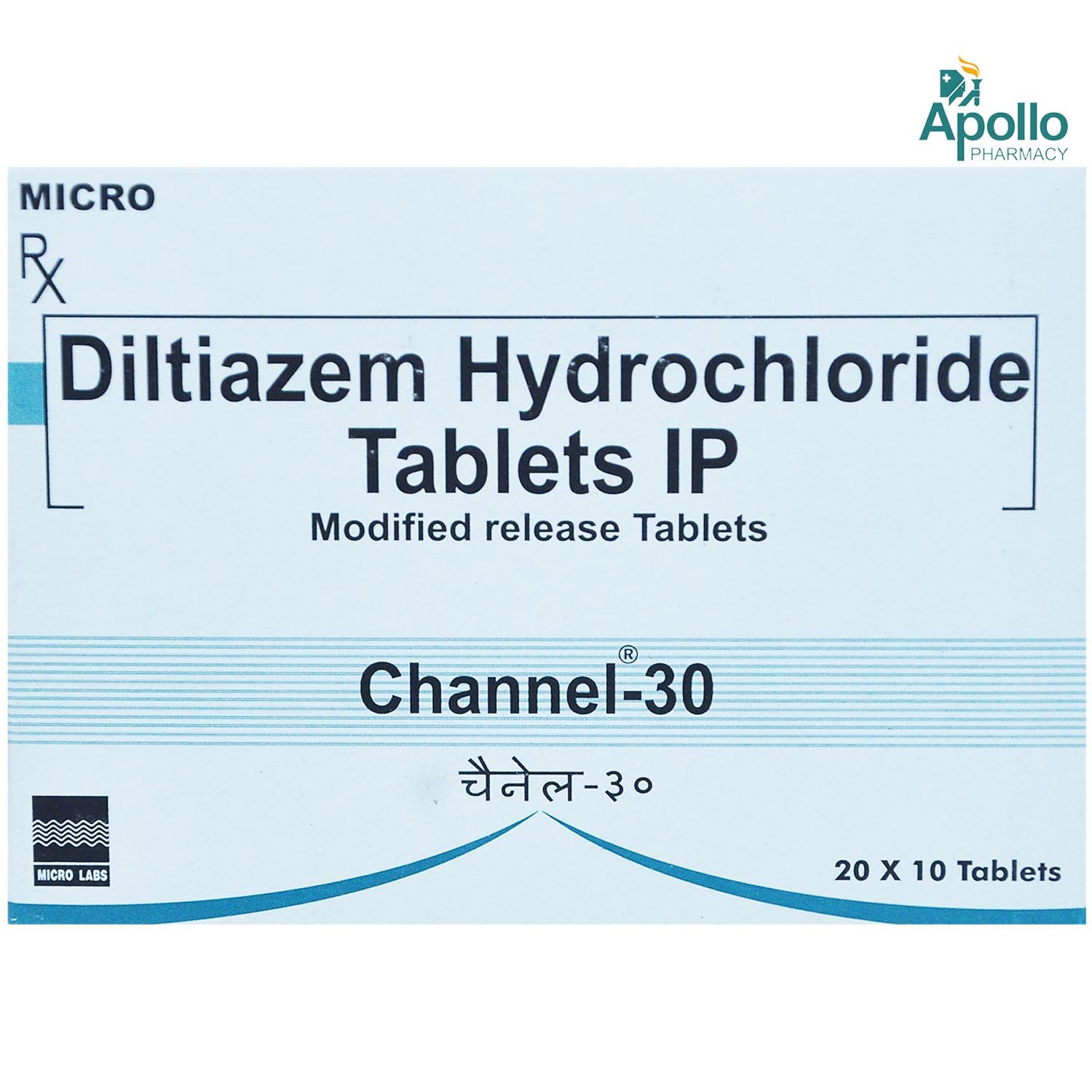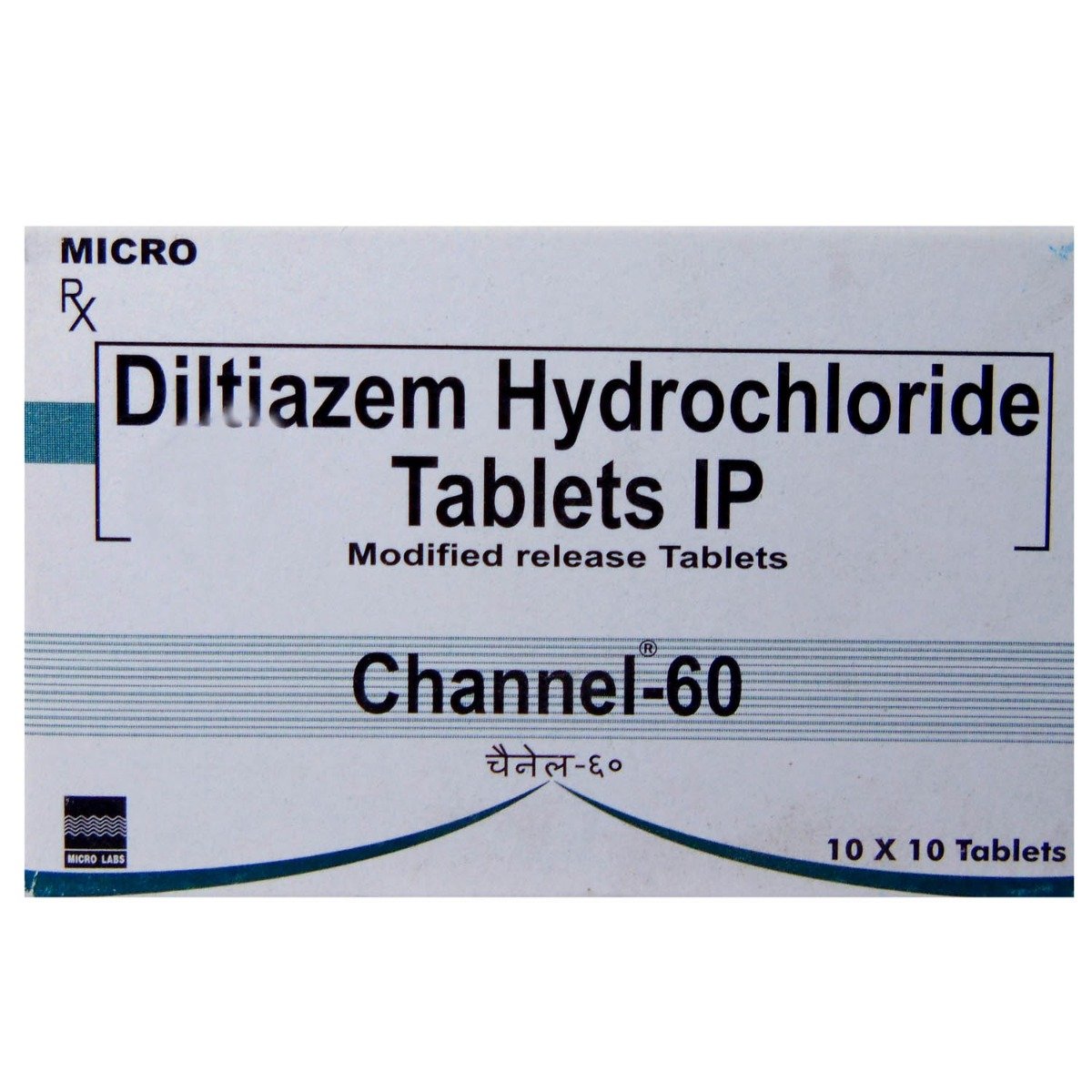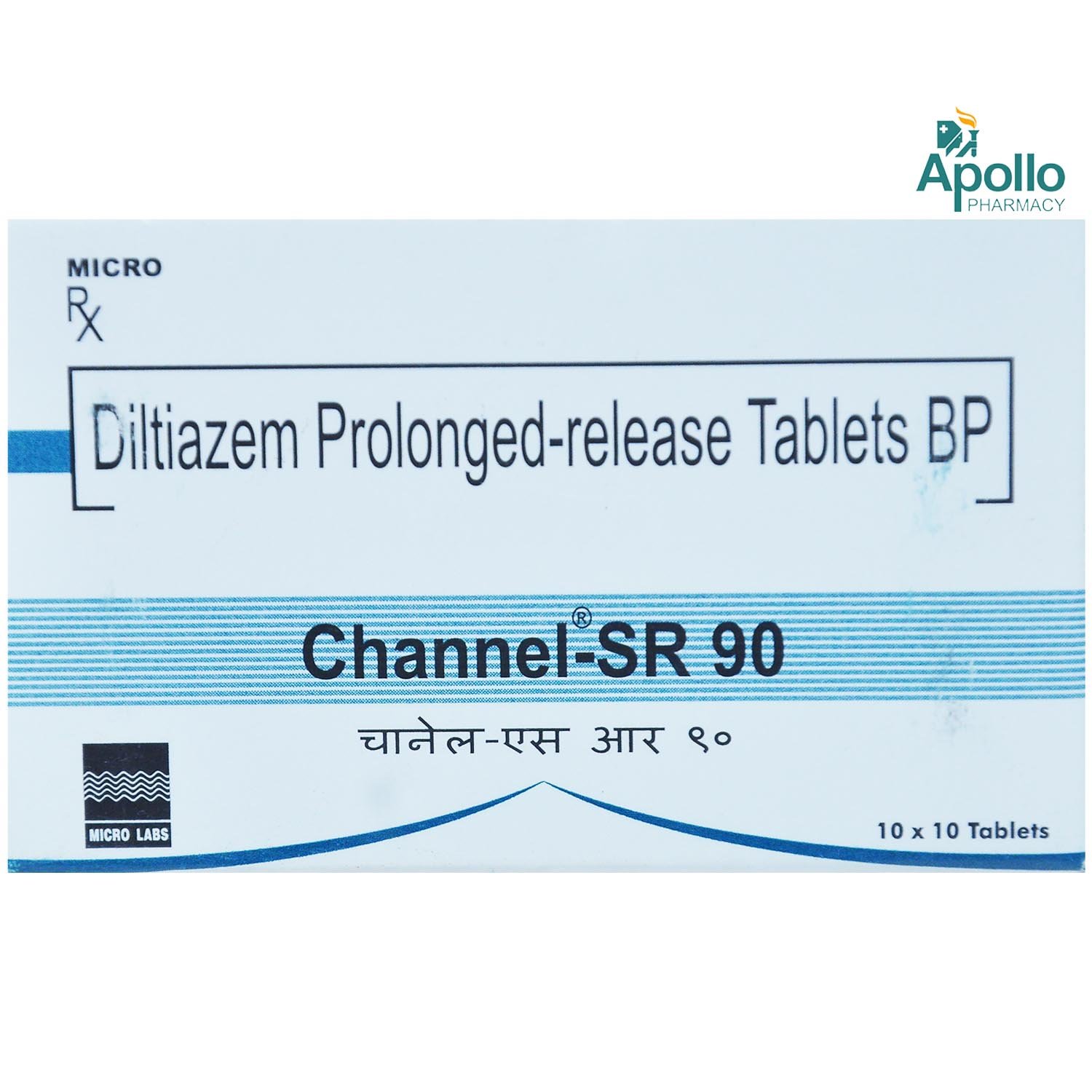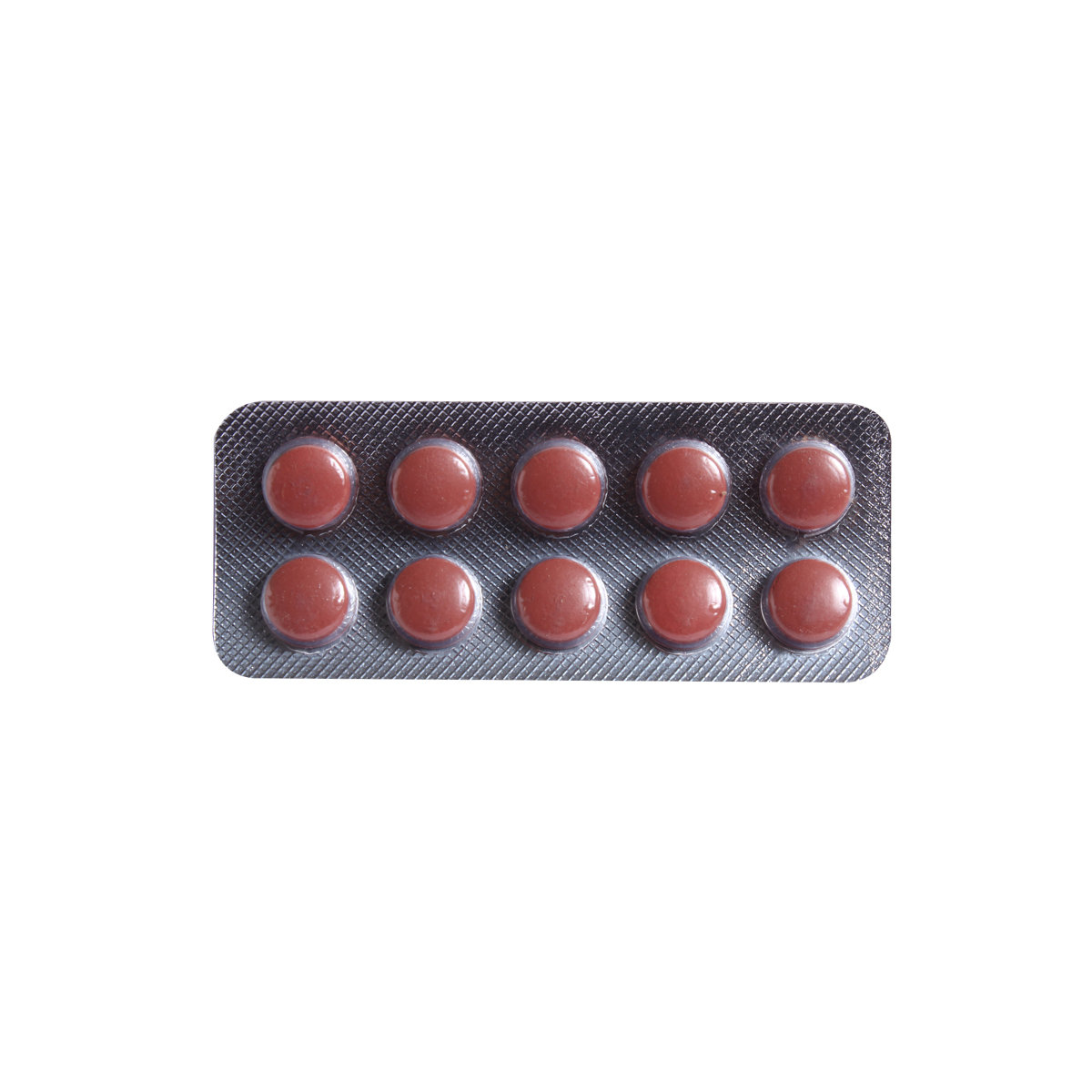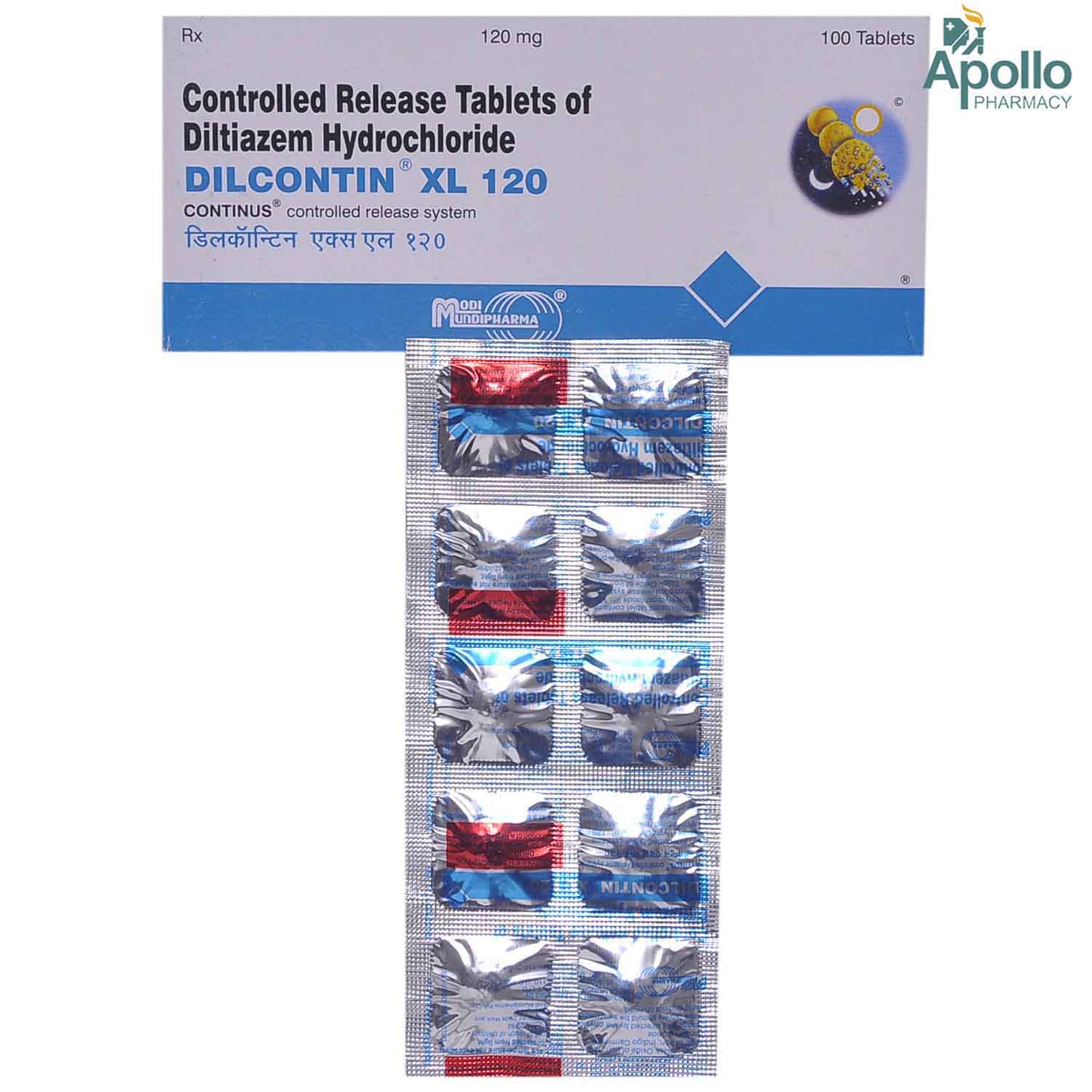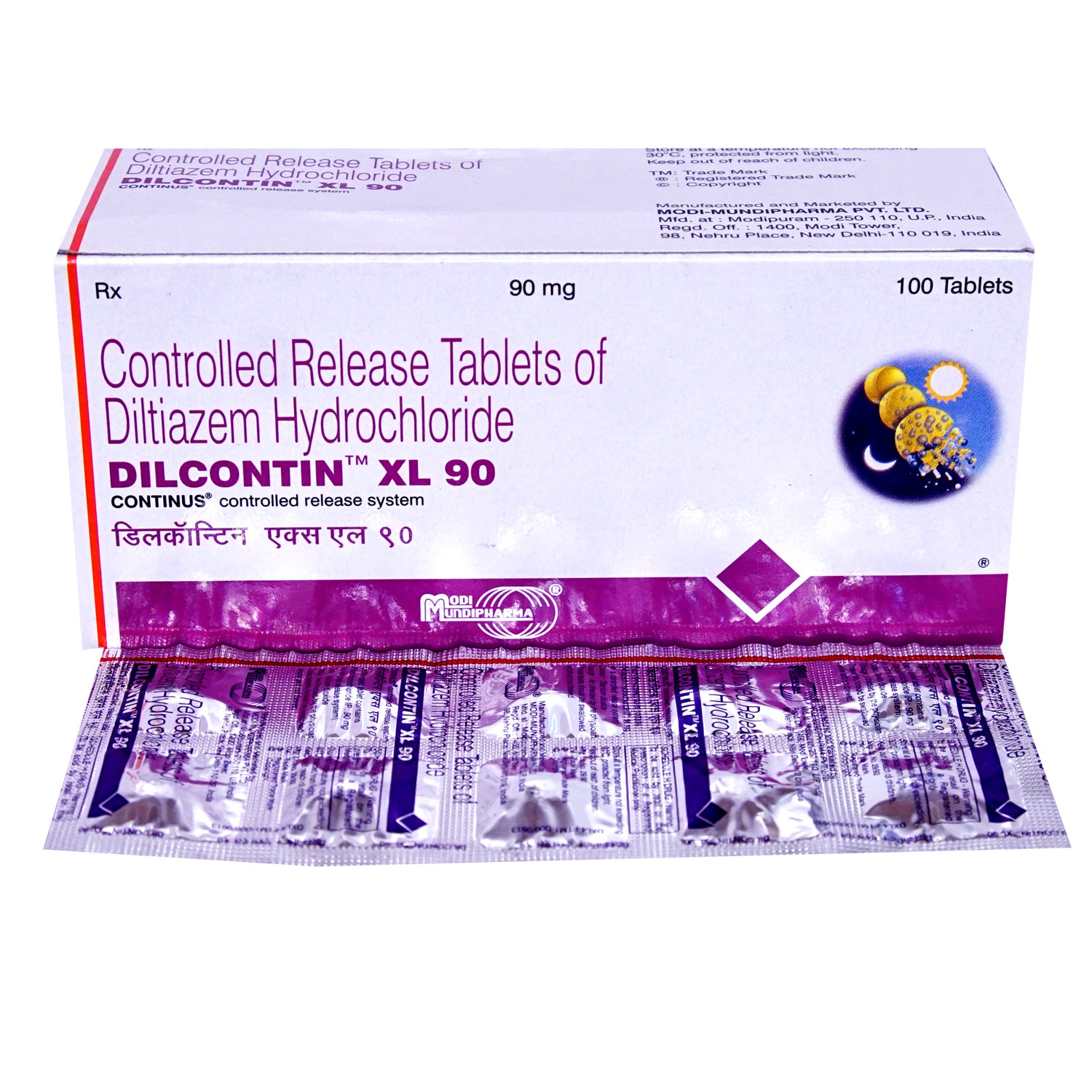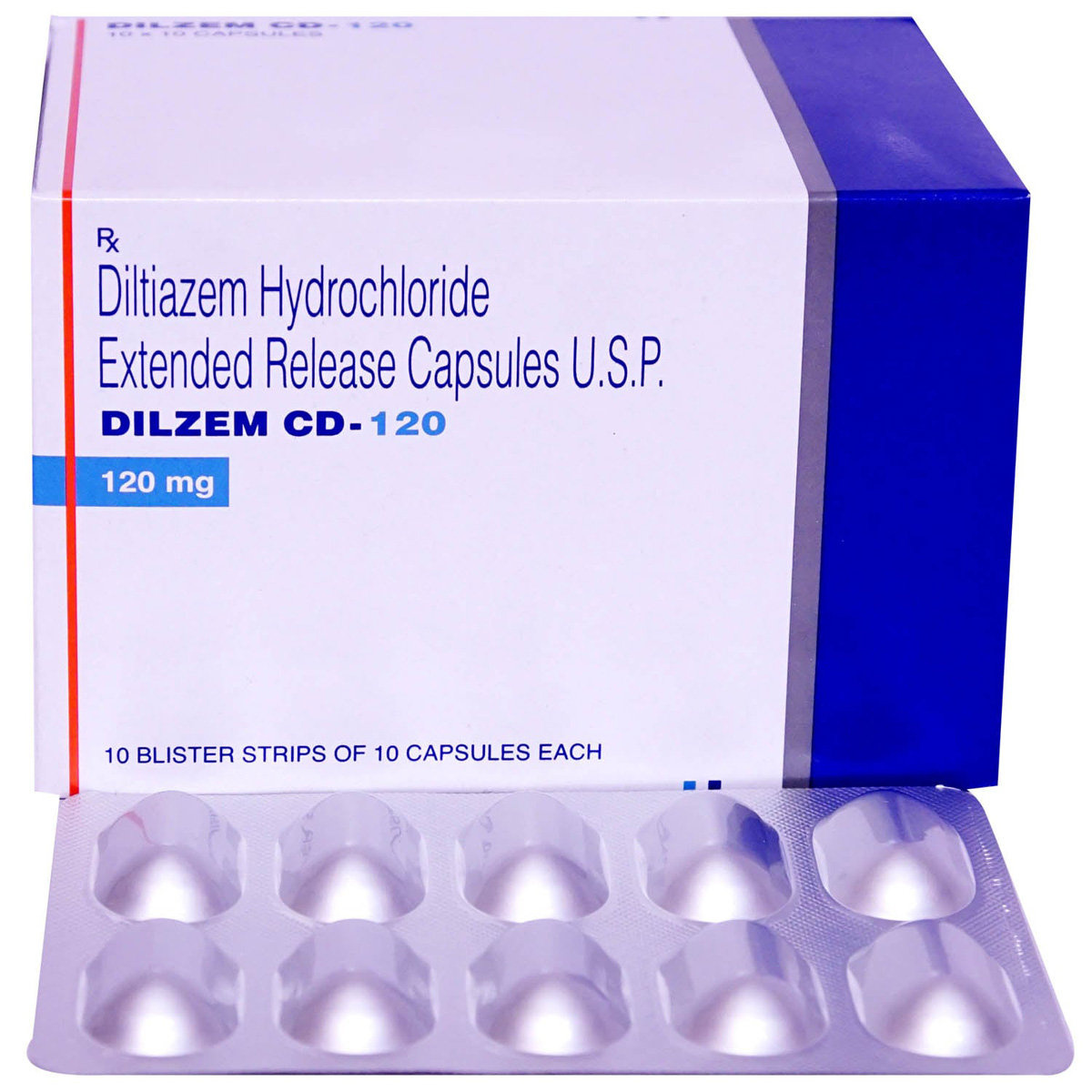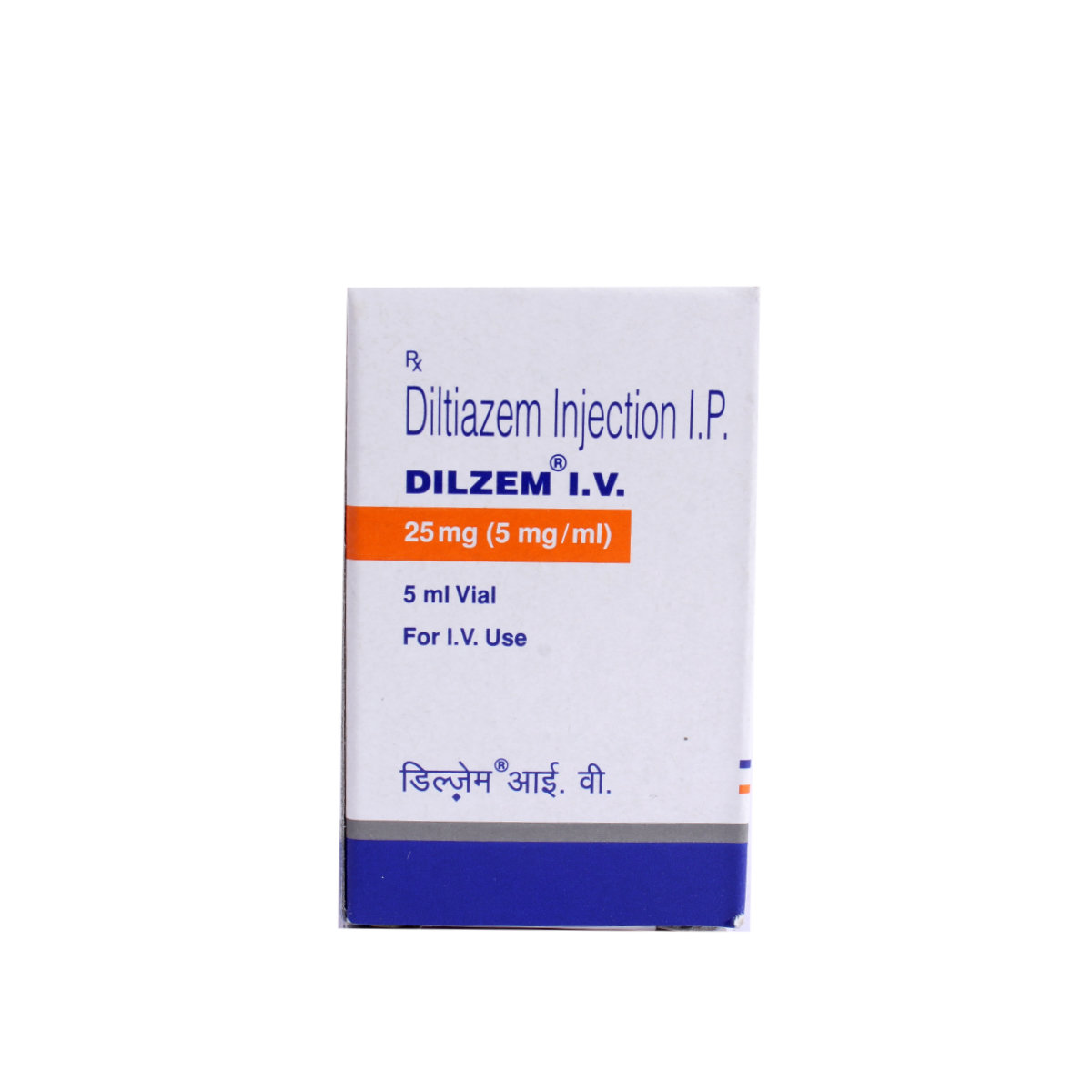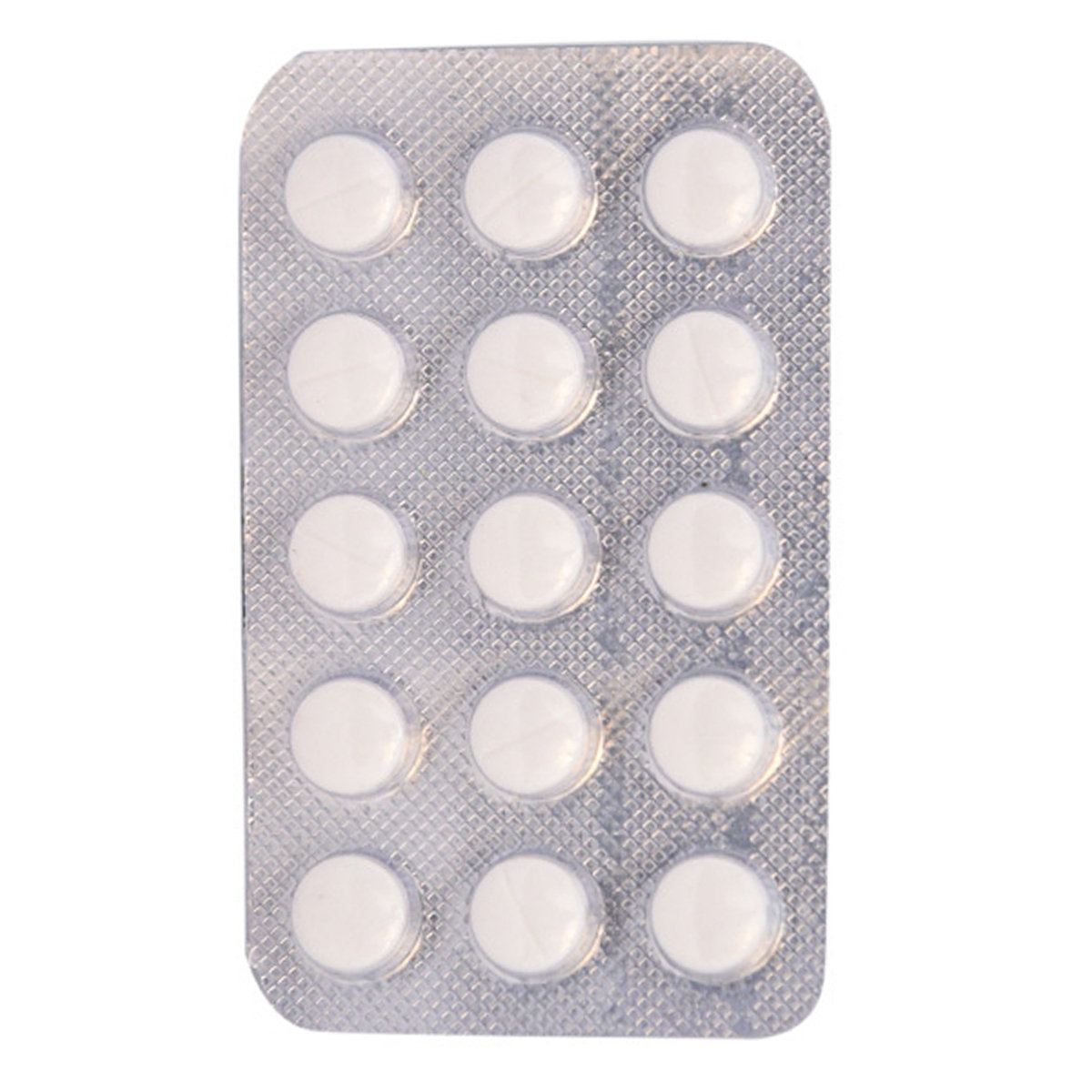Diltiazem
About Diltiazem
Diltiazem belongs to the group of anti-hypertensive medicines called 'calcium channel blockers' used to treat mild to moderate hypertension (high blood pressure). It is also indicated in the management of chronic stable angina and angina due to coronary artery spasms. High blood pressure is a condition in which the blood exerts increased pressure on the walls of blood vessels leading to hypertension. Angina or chest pain occurs due to reduced blood flow to the heart, which is caused by narrowing or blockage of the heart's arteries (coronary artery).
Diltiazem contains 'Diltiazem' which works by relaxing the blood vessels in the heart, thereby reducing the raised blood pressure. Diltiazem eases anginal chest pain by preventing the narrowing of blood vessels and dilating the coronary arteries. As a result, Diltiazem helps treat/prevent high blood pressure and angina.
Take Diltiazem with or without food. You are advised to take Diltiazem for as long as your doctor has prescribed it for you depending on your medical condition. In some cases, you may experience certain common side effects such as swelling in the hands, feet, and ankles, headache, dizziness, palpitations, constipation, and indigestion. Most of these side effects do not require medical attention and will resolve gradually over time. However, you are advised to talk to your doctor if you experience these side effects persistently.
Regular monitoring of blood pressure, electrolyte levels and kidney functioning is advised while taking Diltiazem. Diltiazem may cause dizziness, so drive only if you are alert. Avoid taking Diltiazem if you are pregnant or breastfeeding; talk to your doctor, he/she may prescribe you an alternate medicine. Diltiazem is not recommended for children as efficacy and safety have not been established. If you are due to undergo any surgery or dental procedure, inform the doctor that you are taking Diltiazem. Keep your doctor informed about your medical history and medications to rule out any side effects/interactions.
Uses of Diltiazem
Medicinal Benefits
Diltiazem belongs to the group of anti-hypertensive medicines called calcium channel blockers used to treat mild to moderate hypertension (high blood pressure). It is also indicated in the management of chronic stable angina and angina due to coronary artery spasms. Diltiazem works by inhibiting the movement of calcium ions across the heart muscle and smooth muscle linings of the blood vessels, thereby relaxing and widening the narrowed blood vessels making it easier for the blood and oxygen to reach the heart. This, in turn, helps in lowering the blood pressure and the risk of having a heart attack or stroke. Diltiazem eases anginal chest pain by preventing the narrowing of blood vessels and dilating the coronary arteries.
Directions for Use
Storage
Side Effects of Diltiazem
- Swelling in the hands, feet, and ankles
- Headache
- Dizziness
- Palpitations
- Constipation
- Indigestion
Drug Warnings
Do not take Diltiazem if you are allergic to any of its contents, if you have/had low blood pressure, heart failure, low pulse rate, or if you are taking dantrolene (muscle relaxant), ivabradine (used to treat heart failure), or if you are currently in shock (reduced blood flow to organs). Inform your doctor if you have/had diabetes, liver or kidney problems, porphyria (a rare disease of the blood pigment), myasthenia gravis (muscle problems), heart problems, or constipation. Diltiazem may cause mood changes and depression in some people. Consult your doctor immediately if you think you are affected. Diltiazem is not recommended for use in pregnant women, breastfeeding mothers and children.
Drug Interactions
Drug-Drug Interactions: Diltiazem may have interaction with muscle relaxant (dantrolene), a drug used to treat heart failure (ivabradine), cholesterol-lowering agents (simvastatin, atorvastatin), antimanic drugs (lithium), blood thinner (warfarin, aspirin, apixaban, rivaroxaban), drugs used to treat asthma (theophylline, salmeterol+fluticasone, formoterol+budesonide), beta-blocker (metoprolol).
Drug-Food Interactions: Avoid consuming grapefruit/grapefruit juice as it may affect the amount of Diltiazem in blood.
Drug-Disease Interactions: Inform your doctor if you have liver disease, kidney dysfunction, or heart-related problems such as aortic stenosis, congestive heart failure, bradyarrhythmia, low blood pressure, or coronary artery disease.
Drug-Drug Interactions Checker List:
Safety Advice

Alcohol
cautionYou are recommended to avoid alcohol consumption while taking Diltiazem to avoid unpleasant side-effects.

Pregnancy
unsafeDiltiazem is pregnancy risk category C medicine, and its efficacy and safety have not been established. Hence, it is not recommended to take Diltiazem while you are pregnant or planning for pregnancy. Please consult your doctor if you have any concerns regarding this.

Breast Feeding
unsafeIt is not recommended to take Diltiazem while you are breastfeeding as Diltiazem may pass into breast milk. Please consult your doctor if you have any concerns regarding this.

Driving
cautionDiltiazem may cause dizziness and tiredness, do not drive or operate heavy machinery if you experience these symptoms.

Liver
cautionDose adjustment may be needed. Diltiazem should be used with caution in patients with liver disease. Please consult your doctor if you have any concerns regarding this.

Kidney
cautionDose adjustment may be needed. Diltiazem should be used with caution in patients with kidney disease. Please consult your doctor if you have any concerns regarding this.

Children
unsafeDiltiazem is not recommended for children below 18 years of age, as the efficacy and safety have not been established.
Habit Forming
Diet & Lifestyle Advise
- You are advised to consume low salt and low-fat diet while taking Diltiazem.
- Regular exercise is also recommended to complement treatment with Diltiazem.
- Eat a diet rich in whole grains, vegetables, fruits.
- Avoid smoking and alcohol consumption.
- Maintain a healthy weight with proper diet and exercise.
- Managing stress with meditation, yoga, massage would also help in treating high blood pressure.
Special Advise
- Regularly monitor blood pressure levels to prevent hypotension (low blood pressure).
- Get up slowly while rising from a lying or sitting position as Diltiazem may cause light-headedness.
- Women of child-bearing potential must use effective contraception while on treatment with Diltiazem.
- To treat your condition effectually continue taking Diltiazem for as long as your doctor has prescribed it. Try not to stop taking it on your own as it may cause a sudden increase the blood pressure, chest pain or heart attack.
- Your doctor may advise you to get regular tests while taking Diltiazem if you have kidney and liver impairment.
Patients Concern
Disease/Condition Glossary
High blood pressure (hypertension): It is a condition in which the blood exerts increased pressure on the walls of blood vessels leading to hypertension. This condition can lead to hardened arteries (blood vessels), decreasing the blood and oxygen flow to the heart. Raised blood pressure can cause chest pain (angina) and heart attack. Additionally, high blood pressure also causes brain damage (stroke) and kidney failure. Symptoms of high blood pressure include headache, dizziness, nose bleed, changes in vision, chest pain, weakness and dyspnoea (shortness of breath). However, most of the time, the signs and symptoms of hypertension are none.
Angina (chest pain): It occurs due to reduced blood flow to the heart, which is caused by narrowing or blockage of the heart's arteries (coronary artery). The blockade usually occurs due to the build-up of fat/cholesterol in the coronary artery. Symptoms include pain or tightness in the chest, neck, arms or back, weakness, lightheadedness, anxiety and abnormal heartbeat.
FAQs
Diltiazem works by relaxing the blood vessels in the heart, thereby reducing the raised blood pressure. Diltiazem eases anginal chest pain by preventing the narrowing of blood vessels and dilating the coronary arteries.
Please do not stop taking Diltiazem without consulting your doctor as it may lead to a rise in blood pressure leading to an increased risk of angina (chest pain), stroke and heart attack. Continue taking Diltiazem for as long as your doctor has prescribed it to you. Do not be reluctant to speak with your doctor if you experience any difficulty while taking Diltiazem.
Diltiazem may cause swelling in the fingers, feet, and ankles. To prevent this, avoid sitting or standing for a long time, raise your legs while sitting down, reduce your intake of salt (sodium chloride) and exercise regularly to maintain good circulation.
Diltiazem may increase the chance of skin sensitivity (photosensitivity). Avoid prolonged exposure to sunlight. Wear protective clothing and sunscreen whilst going out.
Diltiazem may cause light-headedness due to a sudden lowering in blood pressure leading to dizziness on standing. If you experience this, do not try to stand up suddenly or start walking; instead, lie down and get up slowly only when you feel better.

